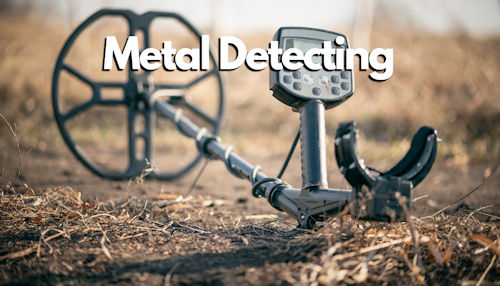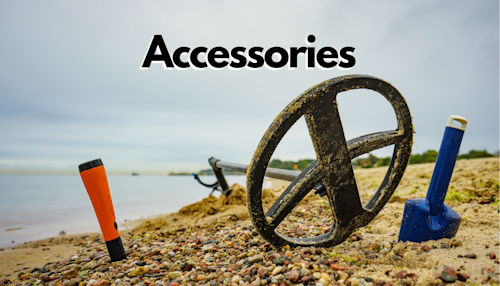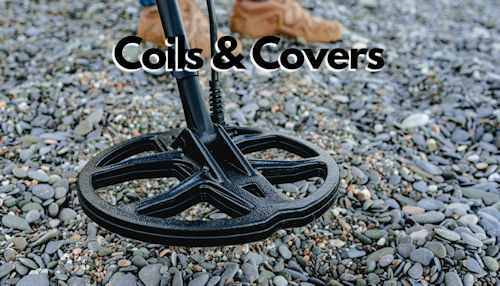Tips for beginning metal detecting
Quote from Big D on April 15, 2025, 9:38 am🔍 1. Choose the Right Detector
Start with something simple but versatile. Look for:
Beginner-friendly interface (like preset modes)
Lightweight design
Good reviews for all-terrain or general use
Popular beginner models:
🌍 2. Know Where You Can Hunt
Always check local laws before detecting:
Parks: Many allow detecting, but check city ordinances first
Beaches: Often great for beginners—easy digging and frequent drops
Private land: Always get permission!
Historic sites: Usually off-limits without permits
🎧 3. Learn Your Detector
Spend time learning how it works:
Read the manual (seriously, it helps)
Watch YouTube tutorials for your exact model
Practice in your yard with planted coins, nails, and junk to learn the tones
🛠️ 4. Must-Have Tools
Headphones (wired or wireless): Hear faint signals better
Pinpointer: Handheld device to locate the target once you dig
Digging tool: A trowel or small shovel (get one that cuts through roots/soil easily)
Pouch or bag: Store finds and trash separately
Gloves: Protect your hands—trust me
🧠 5. Patience & Mindset
You won’t strike gold right away—expect a lot of pull tabs, bottle caps, and nails
But those finds are part of the learning curve
Celebrate the small wins—first coin, old relic, or even cool junk
📋 6. Dig Everything at First
Learn the difference between trash and treasure by actually digging
Some great targets sound like junk, especially gold or odd-shaped jewelry
🕵️♂️ 7. Go Slow and Low
Swing the coil close to the ground (but don’t scrape it)
Overlap your swings so you don’t miss spots
Move slowly and listen for faint signals—those are often deep, older targets
🧭 8. Good Places to Start
Your own backyard
Around old trees, picnic tables, sports fields
Paths where people walk or gather
Tot lots (wood chip playgrounds)—easy digging and often productive
🪙 9. Keep Track of Your Finds
Take photos or write a log of your finds—date, location, and what you found
It helps track patterns and makes it even more rewarding over time
♻️ 10. Dig Responsibly
Always fill your holes neatly
Remove trash when you find it (you’re cleaning the earth!)
Respect other people and wildlife
🔍 1. Choose the Right Detector
Start with something simple but versatile. Look for:
-
Beginner-friendly interface (like preset modes)
-
Lightweight design
-
Good reviews for all-terrain or general use
-
Popular beginner models:
🌍 2. Know Where You Can Hunt
Always check local laws before detecting:
-
Parks: Many allow detecting, but check city ordinances first
-
Beaches: Often great for beginners—easy digging and frequent drops
-
Private land: Always get permission!
-
Historic sites: Usually off-limits without permits
🎧 3. Learn Your Detector
Spend time learning how it works:
-
Read the manual (seriously, it helps)
-
Watch YouTube tutorials for your exact model
-
Practice in your yard with planted coins, nails, and junk to learn the tones
🛠️ 4. Must-Have Tools
-
Headphones (wired or wireless): Hear faint signals better
-
Pinpointer: Handheld device to locate the target once you dig
-
Digging tool: A trowel or small shovel (get one that cuts through roots/soil easily)
-
Pouch or bag: Store finds and trash separately
-
Gloves: Protect your hands—trust me
🧠 5. Patience & Mindset
-
You won’t strike gold right away—expect a lot of pull tabs, bottle caps, and nails
-
But those finds are part of the learning curve
-
Celebrate the small wins—first coin, old relic, or even cool junk
📋 6. Dig Everything at First
-
Learn the difference between trash and treasure by actually digging
-
Some great targets sound like junk, especially gold or odd-shaped jewelry
🕵️♂️ 7. Go Slow and Low
-
Swing the coil close to the ground (but don’t scrape it)
-
Overlap your swings so you don’t miss spots
-
Move slowly and listen for faint signals—those are often deep, older targets
🧭 8. Good Places to Start
-
Your own backyard
-
Around old trees, picnic tables, sports fields
-
Paths where people walk or gather
-
Tot lots (wood chip playgrounds)—easy digging and often productive
🪙 9. Keep Track of Your Finds
-
Take photos or write a log of your finds—date, location, and what you found
-
It helps track patterns and makes it even more rewarding over time
♻️ 10. Dig Responsibly
-
Always fill your holes neatly
-
Remove trash when you find it (you’re cleaning the earth!)
-
Respect other people and wildlife
![]()







